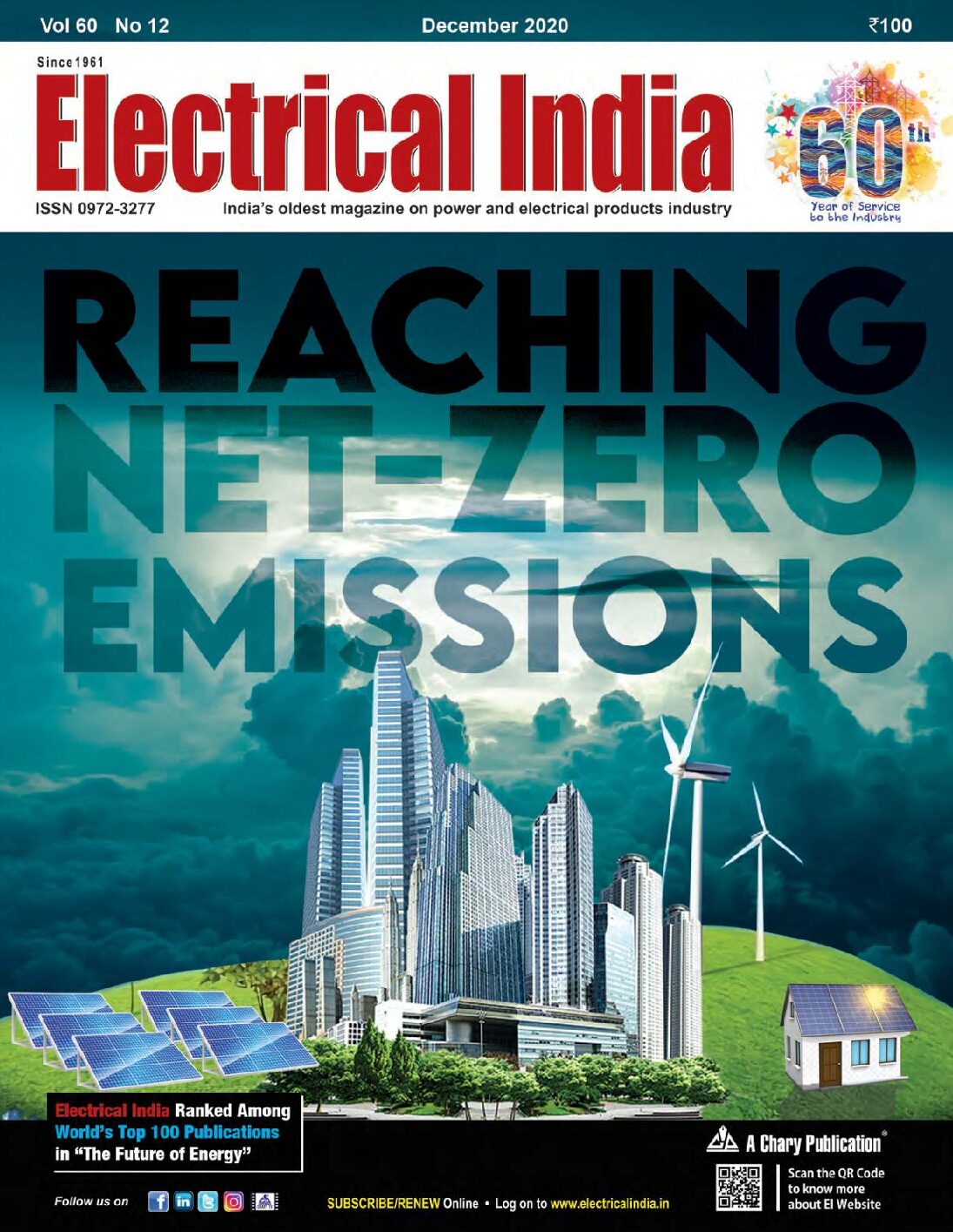
Energy is one of the important inputs for economic growth. Developing countries energy needs keep increasing exponentially for the development of infrastructure, manufacturing and transportation to mention the few. Developed countries have high energy needs in sustaining the development. Though the developed countries population is only 20 per cent of total world, their energy consumption is about 60 per cent against 80 per cent population and 40 per cent energy consumption of developing countries.
Energy needs of the world are being supplied by coal, oil, natural gas, nuclear fuel, electricity etc. Electricity is generated using primary fuels, predominantly from coal, oil, natural gas and nuclear fuel. In India, about 70 per cent of electricity generation is from coal. Though all countries energy needs are supplied from these energy sources, their availability geographically is not even. Different countries have in different proportions of these energy sources. USA has the largest share of global coal reserves (25.4%). India is fourth largest country with 8 per cent global coal reserves. Saudi Arabia had largest global oil reserves (23%). Russian Federation has largest global gas reserves with almost 24 per cent.
Problems and Solutions
For the world to sustain the standard of living, its energy needs must be supplied. The problem is that our present primary sources are not infinite. They are not going to last forever. Coal and other fuels which took about three million years to form are going to extinct. Past 200 years mankind consumed about 60% of coal reserves. Coal is expected to last over 200 years. Oil reserves are expected to last just about 45 years and gas for nearly 65 years. Alternate sources for electricity generation needs to be developed. Enough technological developments must be made to make the technology safe, efficient and economical. Generation from nuclear fuel is definitely promising but more penetration is needed. Governments and policy makers must consider this option seriously in the coming five year plan. Solar energy though being encouraged much, high investment, low capacity factor and less awareness among private investors has limited its capacity. Recent fluctuation in government policy making has brought great ambiguity in solar industry in India. For sustaining the existing standards of life, energy efficient methods must be employed. We need to conserve energy sources.
Energy conservation is the method to reduce the consumption of energy by using less of an energy service. This can be done by using energy more efficiently and by reducing the amount of services used. Energy can be conserved by reducing wastage and losses, improving efficiency through technological upgradation and improved operation and maintenance. Energy conservation is achieved when growth of energy consumption is reduced. Energy conservation can, therefore, be the results of several processes or developments.
Indian Stand on Energy Conservation
With higher energy saving potential, the Government of India has enacted the Energy Conservation Act in 2001. The Act provides necessary legal framework and institutional arrangement for observing energy efficient process. According to the Act, an institute was to be set up which would look after the implementation of policy programs and coordination of implementation energy conservation strategies. Bureau of Energy Efficiency (BEE) was established on 1st March, 2002.
Features of Energy Conservation Act Certification of Energy Managers and Accreditation of Energy Auditing firms.
Training modules and accreditation programs has to be designed by BEE in such a way that a cadre of professionally qualified energy managers and auditors can be raised. They need to expertise in implementing energy efficiency projects, analysis of policies, financing and project management. BEE conducts a national level examination for certification of energy managers and auditors.
Standards and Labeling (S & L)
S & L is a key activity in improving energy efficiency. This program objective is to bring only standard and energy efficient equipment and appliances into availability for consumers. For this, minimum energy consumption and performance standards for notified equipment and appliances must be evolved. Any equipment or an appliance which does not conform to these standards will not be allowed for manufacture, sale or import. Develop labeling system for notified equipment to enable consumers to make informed choices (The present star rating is implementation of this program).
Energy Conservation Building Codes
BEE would prepare guidelines for conserving energy in buildings referred as Energy Conservation Building Codes (ECBC). Buildings with connected load of 500kW or contract demand of 600kVA and above with commercial purpose intention are considered buildings and come under ECBC regulations. These buildings would be notified to suit local climate conditions and other compelling factors by the respective states. Energy audit would also be prescribed to consumers with specific designated commercial building.
Central Energy Conservation Fund
This fund would be set up at the Centre to support the creation of development and testing facilities. Give thrust to R&D and develop the delivery mechanism for large scale adoption of energy efficiency services, promote consumer awareness and demonstration to boost market penetration of efficient equipment and appliances.
Designated Consumers
Energy intensive industries and other establishments will be designated as ‘Designated Consumers’. They have to comply with standards and norms of energy consumption as prescribedby the Central Government. Energy managers with prescribed qualification are required to be appointed by the designated consumers and get energy audit conducted by the accredited energy auditor. Aluminum, iron & steel, cement, paper, sugar, textile, chemicals, petrochemicals, gas crackers, naphtha crackers, petroleum refineries, fertilizers, railways, port trust, transport sector (industries and services), thermal & hydel power stations, transmission & distribution companies and commercial buildings and establishments are the designated consumers.

Dr V Sudheer
Associate Professor,
E.E.E. Department,
Raghu Engineering
College, Vishakapatnam

Kranthi Kondru
Student – Ph.D,
J.N.T.U. Kakinada,
Andhra Pradesh














